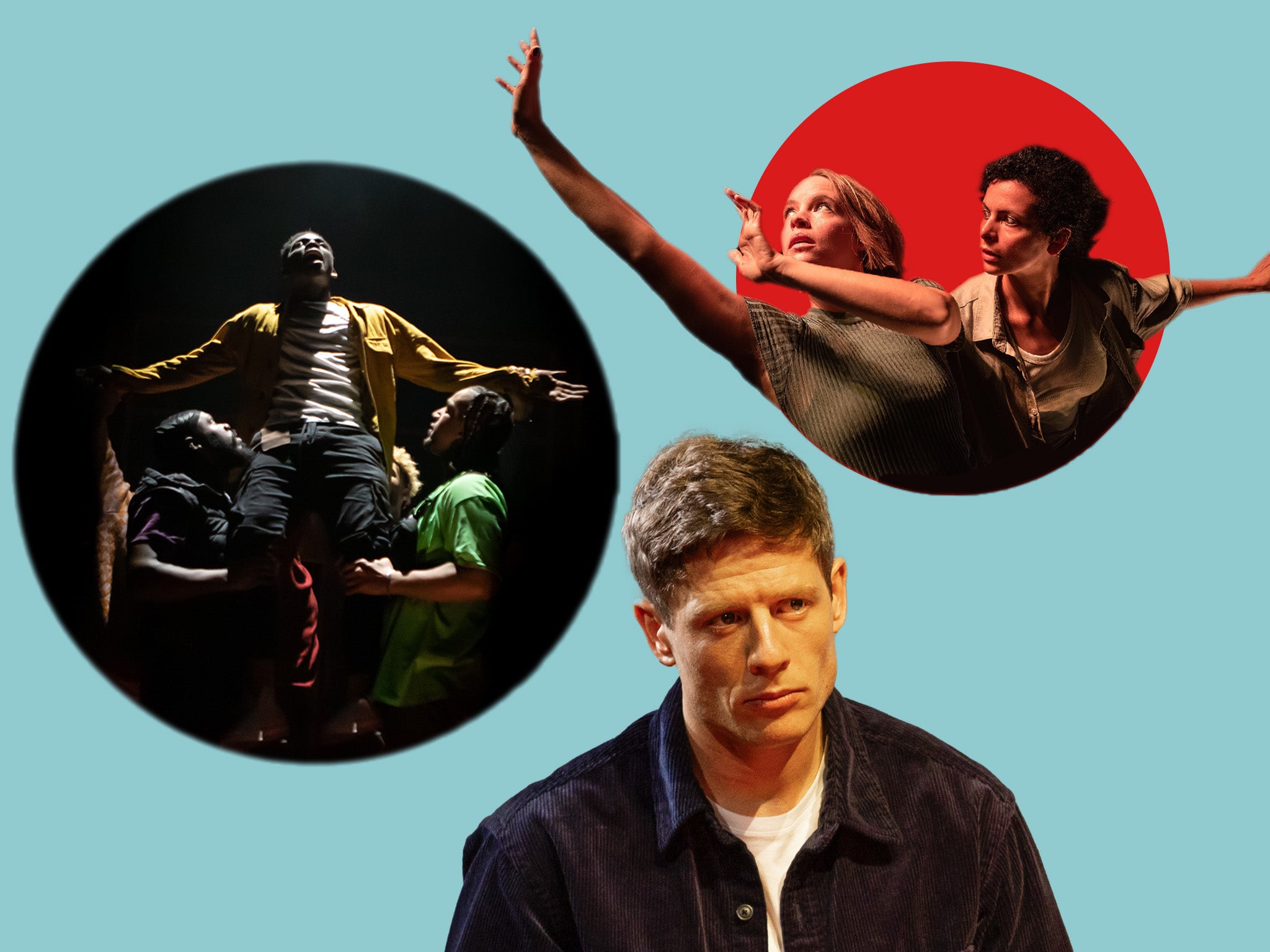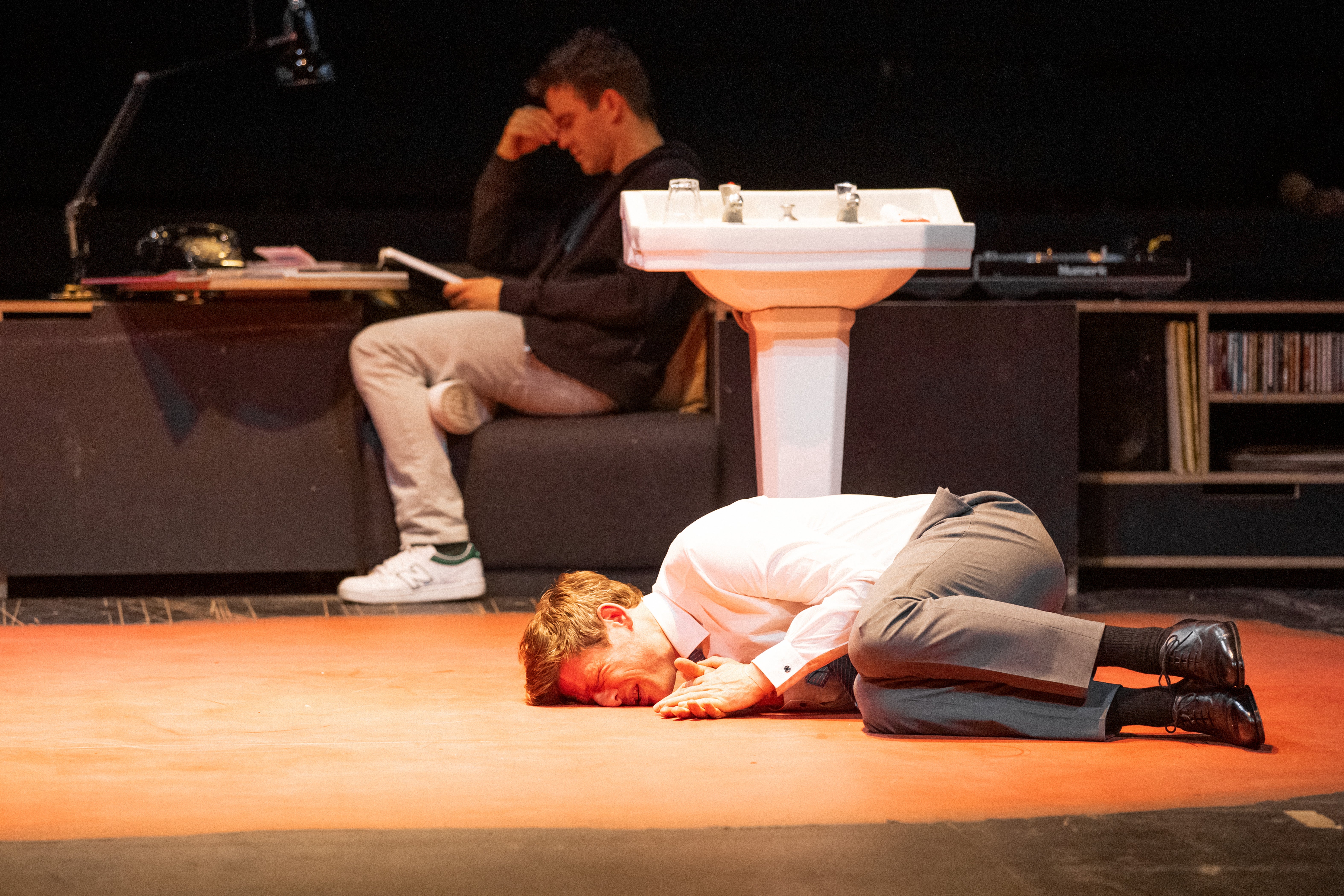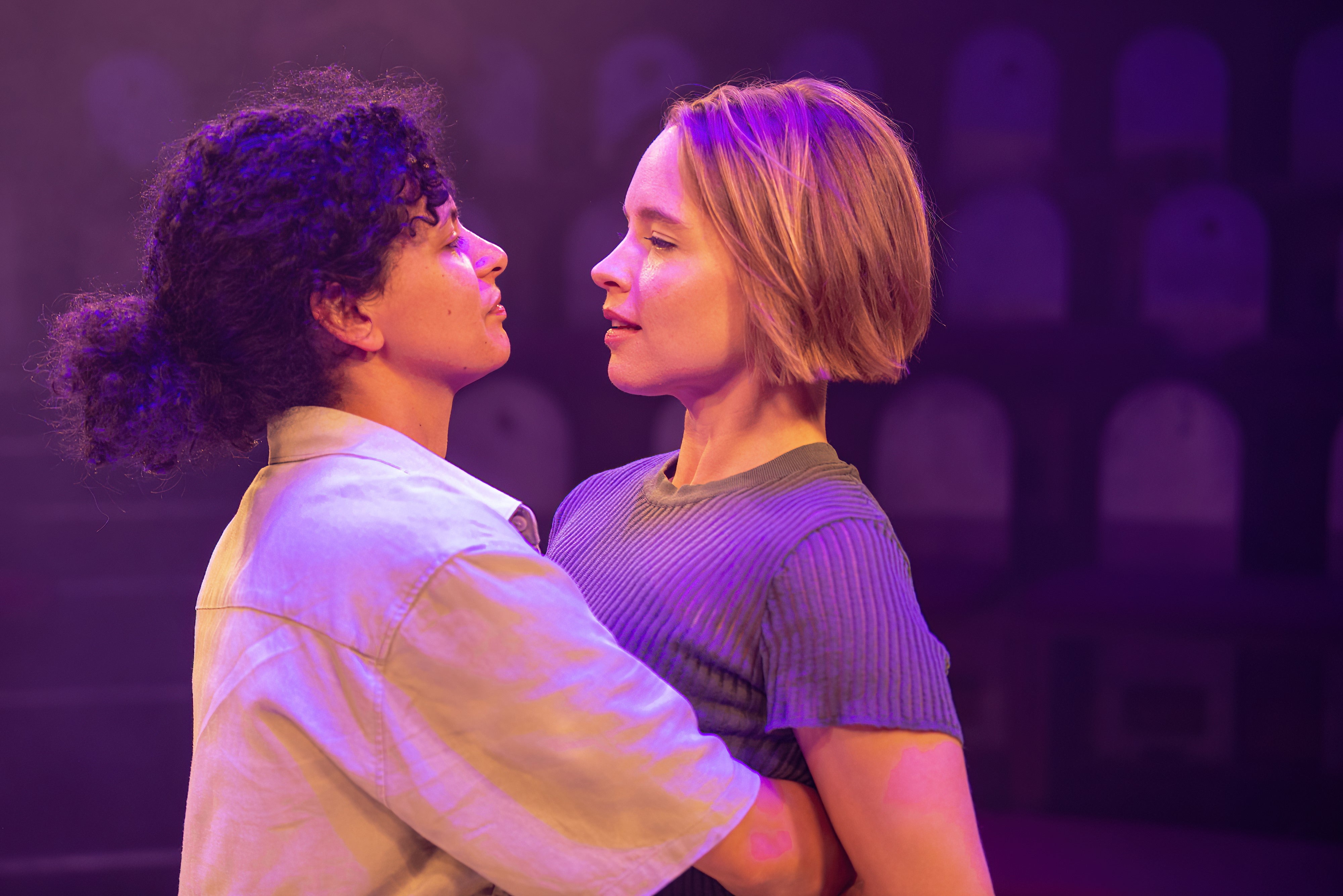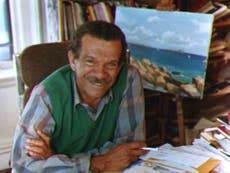The Week on Stage: From A Little Life to For Black Boys
A guide to the week’s theatre

This week, we have the long-awaited arrival of Ivo Van Hove’s take on A Little Life starring James Norton. Elsewhere, Ryan Calais Cameron’s For Black Boys Who Have Considered Suicide When the Hue Gets Too Heavy hits the West End, while Edinburgh Fringe favourite Sap settles in at the Soho Theatre.
For Black Boys Who Have Considered Suicide When The Hue Gets Too Heavy – Apollo Theatre ★★★★★
The line between drama and comedy is razor thin, and difficult to tread. Ryan Calais Cameron’s For Boys Who Have Considered Suicide When The Hue Gets Too Heavy does not so much walk it as dance it. The play, now in its third iteration at the West End after opening in 2021 at the New Diorama theatre and then transferring to the Royal Court last year, dances on a knife’s edge between despair and love, tension and release.

Inspired by Ntozake Shange’s For Coloured Girls Who Have Considered Suicide / When the Rainbow Is Enuf, Calais’ play takes loose form as a group therapy session, with the six Black men on stage taking turns opening up to one another. What comes to light are their differences – beliefs, for example, that they do not share on subjects as varied as whether it is wrong to say the n-word to whether it is hurtful to teach slavery in school – and their similarities; their shared experience as Black men growing up in Britain. They recall stories of colourism, police profiling, schoolyard bullying. “What does it mean to be a Black man in Britain?” they ask. The subject matter is heavy, and appropriately so. Suicide is a spectre that casts a long shadow across this production. And yet interspersed throughout are bright moments of euphoria and comfort, often conveyed through dance. Hope is never out of sight for long.
It is a rich tapestry woven by actors Mark Akintimehin, Emmanuel Akwafo, Nnabiko Ejimofor, Darragh Hand, Aruna Jalloh, and Kaine Lawrence. Together, the men move through Calais’ script and Theophilus O Bailey’s choreography like water: fluid and as one. Individually, they are remarkable. Each monologue glimmers with its own distinct vulnerability. In For Boys Who Have Considered Suicide When The Hue Gets Too Heavy, that line between despair and love, tension and release is splayed open – no longer a line, but endless shades of nuance. Annabel Nugent
A Little Life – Harold Pinter Theatre ★★☆☆☆
Just as medieval peasants sought escape from their humdrum lives by gawping at lurid paintings of bleeding saints, so modern audiences are flocking to A Little Life, a gruelling, blood-soaked narrative of one man’s suffering. I could feel the people around me sobbing and covering their eyes and sometimes I did too. But I also felt manipulated by its naive and psychologically incurious narrative of abuse.
It centres on Jude, who’s got a full house of traumas: repeatedly raped and tortured by monks as a child, emotionally and physically abused as an adult. There’s something borderline pornographic to the intensity with which Ivo Van Hove’s production both describes and depicts these events. Much will be made of James Norton’s bravery in spending so much of this play naked, cutting himself, or being part of harrowing scenes of child abuse. And yes, it’s impressive. But somehow Norton doesn’t convey Jude’s inner life, or do enough to make you desperately root for him.

That’s partly the fault of Van Hove’s cold, surgical, humourless adaptation, but it’s more so the fault of Yanagihara’s book itself. There’s a child-like naivety to Yanagihara’s sense of how the world works. Here, it’s perfectly possible to be dealing with life-altering physical and mental disabilities while simultaneously having an unimpeded career as a top New York corporate lawyer, and also volunteering at a soup kitchen at weekends. Yanagihara’s perspective seems to be that abuse messes you up for life, making emotional intimacy almost impossible and suicide the only way out. Van Hove’s production reinforces that, creating a production that’s so painful to watch that, like Jude, you wish it would all just stop.
There’s a kind of confirmation bias that makes people assume that when they see a very long play or read a very long book, they’re engaging with a great work. In the case of A Little Life, I don’t think they are. If you want to be immersed in other peoples’ pain, go and spend four hours in A&E: it’s cheaper, just as agonising, and you can have a wee whenever you want. Alice Saville
Sap – Soho Theatre ★★★★☆
Between Phaedra at the National and Medea at @sohoplace (by way of Punchdrunk’s immersive show The Burnt City), London’s stage scene is currently flooded with Greek tragedies. In Rafaella Marcus’s debut play, already a hit at Edinburgh Fringe, the myth of Daphne and Apollo is given the theatrical treatment. You don’t need intense knowledge of this story – about a woman who turns into a tree to protect herself from a male aggressor – to enjoy Sap. Our hero may be a bisexual woman who works for a women’s aid charity, but the tragic essence remains in this moving, twisted two-hander.
Jessica Clark’s Daphne – although she is never named in the play – lives in a world that dismisses her identity. When her partner (Rebecca Banatvala, playing all the other roles) offhandedly claims bi women simply “can’t make up their minds”, Daphne chooses to laugh and agree, rather than challenge her. This little lie buries itself and begins to sprout. Daphne sees leaves and vines growing at a rapid rate. Then she meets her Apollo, in the form of her partner’s brother whom – she realises in a moment of horror – she’s already slept with. The roots of the lies spread themselves, threatening to choke her.

Marcus’s writing, while simple, evocatively captures emotion without the need for flowery, poetic prose. “I would know the shape of [her hand] instantly, in the dark, like a baby’s cry,” Clark says, conjuring an offbeat simile with a smile. When male energy enters the room, so does a sense of unease. Still, it’s played for laughs in a sitcom-ish, “can you believe I’ve slept with both siblings, what am I like” kind of way. Quickly, however, his comments take on a manipulative, incest-laden tone that left my chest tight.
Banatvala is a great multi-roler, her characters clearly distinguished without slipping into cliché. The brother, however, is her masterpiece. It’s a true testament to her acting ability, the way in which she inhabits this utterly terrifying man. Clark, meanwhile, is a bold narrator, infusing the lighter moments and comedy asides with a Fleabag-esque swagger. When the show turns, a fear clouds over her eyes that refuses to disperse. Around her, the soundscape buzzes and hums like blood pumping in your ears. Sap is a claustrophobic emotional rollercoaster of a show, bringing to life the emotional essence of ancient tragedy. See it while you can. Isobel Lewis






Join our commenting forum
Join thought-provoking conversations, follow other Independent readers and see their replies
Comments